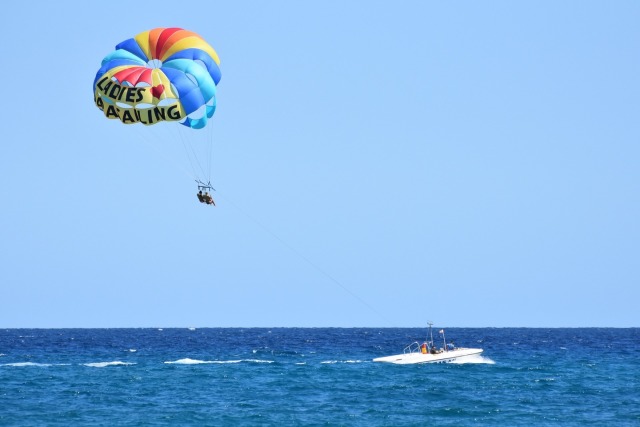Parasailing, also known as parascending or parakiting, is a recreational kiting activity where a person is towed behind a vehicle (usually a boat) while attached to a specially designed canopy wing that resembles a parachute, known as a parasail wing. The manned kite's moving anchor may be a car, truck, or boat. The harness attaches the pilot to the parasail, which is connected to the boat, or land vehicle, by the tow rope. The vehicle then drives off, carrying the parascender and person into the air. If the boat is powerful enough, two or three people can parasail behind it at the same time. The parascender has little or no control over the parachute. The activity is primarily a fun ride, not to be confused with the sport of paragliding.
There are commercial parasailing operations all over the world. Land-based parasailing has also been transformed into a competition sport in Europe. In land-based competition parasailing, the parasail is towed to maximum height behind a 4-wheel-drive vehicle. The driver then releases the tow line; the parasailer flies down to a target area in an accuracy competition.
The sport was developed in the early 1980s and has been very popular ever since. The first international competitions were held in the mid-1980s and continue annually to this day. Over the years, the competitions have grown in scope as well as the number of participants.



 Descargar Google Chrome
Descargar Google Chrome Descargar Mozilla Firefox
Descargar Mozilla Firefox Descargar Opera
Descargar Opera